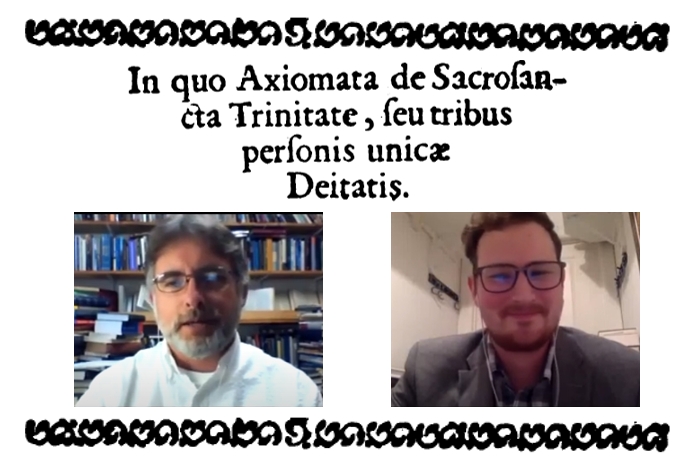Here are links to the posts on Amandus Polanus’ “Eighteen Axioms on the Trinity” (chapter 8 of book 3 of his Syntagma). Each post features Ryan Hurd’s translation of an axiom, followed by video of our conversation about the axiom, and, when appropriate, a few notes and links to things that come up in the conversation.
Axiom 1: The word “Trinity”
Axiom 2: Trinity in Persons, Not in Essence
Axiom 3: Neither Dissimilar nor Similar
Axiom 4: Not Different, Conjoined, Solitary, or Identical
Axiom 5 & 6a: The Persons are One According to Essence
Axiom 6b: The Persons are Really Distinct
Axioms 7, 8, and 9: Real, Opposed Relations
Axiom 10 and 11, Relation and Essence are Simply One in God
Axioms 12 and 13: Not Composed, Not Separate
Axiom 14, on how to consider the persons, is by far the longest of the axioms. It takes up several episodes:
Axiom 14.1: Each Person Singularly and Absolutely
Axiom 14.2: A Person in Relation to the Essence
Axiom 14.3: Homoousios
Axiom 14.4: Equality
Axiom 14.5: Perichoresis
Axiom 14.6: Tropos hyparxeos
Axiom 14.7: Order and Operations
Axiom 14.8: On Missions
Axioms 15 and 16: Enhypostatic Subsistence and No Triples
Axioms 17 and 18: Infinite Coexistence and No Quaternity
Guest: Dr. Steve Tipton on Polanus’ Life, Sources, and Thought
Guest: Dr. Tyler Wittman on Tales from the Classroom
Guest: Dr. Ryan McGraw on Polanus’ Method and O.T. Exegesis
